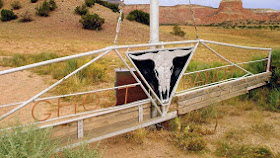The Split Second
Aparna Sanyal
Walking streets of raking stares, she is knowingly unaware.
These lascivious surroundings have been described
 in turns as grimy,
in turns as grimy,
hopeless and end-of-the-road.
Her eyes lie sunken on top of apple cheeks--the
worms have just started their feast.
Yet, her pressed curls tell a story of vanity
and a placed pride of beauty, bright.
It’s in her soul; this clenching light.
It radiates from pores in subtle pulses,
easily missed, as she angles her scrawn more seductively.
She makes a thigh meatier, a breast more succulent,
subsides a too-large cup with
quick deft fingers.
The split second betrays her--that time between
her eye-locking, inscrutable gaze-fix, and
the downward tilt it takes to smoothen her creases--
That is the moment!
It tells the world everything; speaks louder than a foghorn,
sings sensual trails of Mesmer that suddenly bind its seekers.
Actions are forethought, not a limb out of sync,
but this unconscious moment betrays the cultivated outré of her sardonic tongue,
makes her an ingénue, fresh faced and in love for the first time.
This split second is all it takes
for every lonely, wretched, tawdry, depressed form
of humanity, all dross and hubris--
to fall instantly, madly in love with her--
and for a night,
she loves them too.
By mornings’ bleached rays
they walk away, scarred and refreshed; for
vampiric, they’ve drunk of her light. They are
thunderstruck by her giving.
She watches them leave,
turns inside-out once more.
Soon she will find light to run on,
and on and so it will go--her battery will magnify
her watt-switched-on smile, and
that split second demise
will bring all to her door.
Poet’s Notes: Outside the vast skyscrapers of Mumbai’s skyline, hutments line the streets. Those hutments often host a particular trade that bustles at all hours--one to which most office-goers and locals turn a blind eye and that thrives with the blessings of the constabulary that partakes in its pleasures of the flesh and hefty sums of weekly bribe money. In those lines of girls, standing vacant-eyed, waiting for the next customer to show, are beating hearts too. And each sallow face hides such dreams and desires. This poem is an imagining of one such girl and her unique spark.















